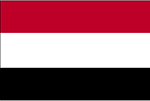
Population
30M+
CHRISTIAN PERSECUTION STATUS
extreme
Persecution
CHRISTIAN POPULATION
<1%
Status of
the church
Although no official statistics exist, it is believed that 65% of Yemenis are Sunni Muslims and 35% are Shia Muslims. Christians, Jews, Baha’is, and Hindus together make up less than one percent of the population. Yemen’s legal system was founded on both Islamic sharia law and a secular civil code. Freedom of thought is protected by the constitution, but proselytizing to Muslims is illegal. Leaving Islam is officially a capital offense.
While Yemen’s government controls the country, members of minority religions could worship in relative freedom. However, religious freedom has deteriorated since a rebel coalition led by Zaidi Houthis seized control of the country in 2014. Among other targets, Shia mosques and Christian churches have been attacked by armed groups. There are an estimated 40,000 Christians are living throughout Yemen (Pew Research Center).
Nearly 80% of the population is now in need of humanitarian assistance (USAID). A staggering 20 million people do not have access to even basic health care, and more than five million are suffering from borderline famine conditions. The humanitarian crisis requires large-scale efforts from outside aid sources. There are over 2 million IDPs within the country (CIA World Factbook). Also, human trafficking is a growing concern for men, women, and children in Yemen due to the lack of security and conditions of poverty.
TV and radio are the primary sources of media in Yemen. The Internet is often offline, but those with Internet or satellite access may watch SAT-7 ARABIC.
Location
Prayer points